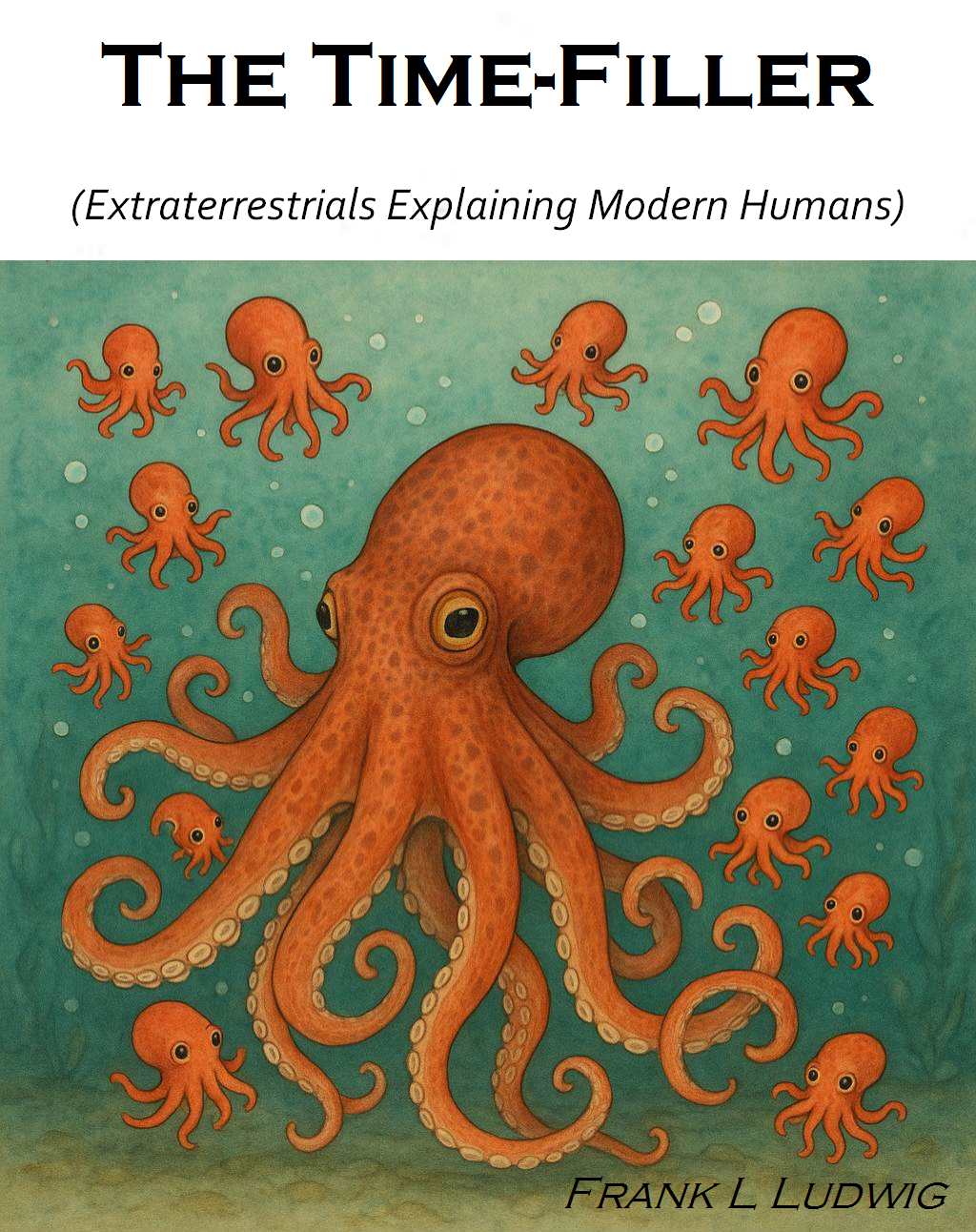Home | Poems | Plays | Short Stories | Essays | Children's Stories | Children's Poems | German | Photographs | Autism Appreciation | Contact

'… and that is how the Wanguagi became the first species able to travel between galaxies.
This concludes the lesson on the great civilisations of the known universe. And since we have some time left before we go hunting, I'll tell you a bit about a lesser-known creature that demonstrates the weird twists evolution sometimes has to take. Within our own galaxy there's a small planet called Earth that is covered by vast landmasses known as continents. 100,000 Earth years ago there were still several kinds of humans (bipedal creatures that worked with tools) around, but most of them have disappeared since.
The most sophisticated one had spread over one continent. They were scattered in small groups, lived in caves and tents, wore clothes and hunted big game. They were able to light fires, cross large bodies of water, communicate through complex language, play musical instruments and employ chemical synthesis. They identified individually and therefore considered everybody else an equal individual, no matter how different or dependent on others they were. They looked after the sick and old and buried their dead. They had the largest brains of all humans, and problems were solved by their stunning ability to think independently, and that's why we call them the Thinkers. However, since the groups were only loosely connected, new inventions and developments were only disseminated very slowly, if at all.
The continent south of the Thinkers, which was connected to theirs, was dominated by people who lived in large groups whose members identified collectively and therefore considered anyone who was different from them a threat that needed to be eliminated. Their groups were structured hierarchically, and compliance and conformity were crucial for survival - that's why we call them the Followers.
At some stage groups of Followers spilt northwards into the Thinkers' territory, even though they were unaccustomed to the freezing climate they were unable to handle. The reason for their migrations isn't known, but it's most likely that they were displaced by other groups of Followers and had to look for a new home. Most of them fell victim to the hostile environment, and their lines went extinct.
But some were lucky and crossed paths with Thinkers who accepted them into their groups and taught them the survival skills they needed. Over time Thinkers and Followers had families together, and their cultures merged.
More and more Followers moved to the new continent, and soon the Thinkers were vastly outnumbered by Followers until they were eventually entirely assimilated by the newcomers. This led to larger brains in the Followers (followed by a subsequent decrease in brain size after the last Thinker had been assimilated), combined with a certain appreciation for human progress.
The people resulting from this process today call themselves modern humans in whom evolution combined the Thinkers' abilities to care, to think and to create with the Followers' ability to network. And even though progress slowed down significantly, the progress that was made now spread a lot faster.
As adults, all modern humans are on a spectrum between individual and collective identity, with the vast majority identifying collectively. However, all their children are born with individual identities, but most of them are forced to take on the collective identities of their environments instead in a deindividuation process called social conditioning.
Modern thinkers are people who resist (or are not exposed to) social conditioning and retain their individual identities at the cost of being ostracised and pathologised. They are the driving force behind human progress but rely on the network of moderate modern followers to spread it while many other modern followers try to undermine or reverse the process.
Of course for a while there were still Followers who hadn't left their home and never associated with Thinkers, but they went extinct over time. There are two possible reasons for that: one is that they merely failed to adapt to changing conditions and, like most other hominins, eventually disappeared. The other is that they were confronted by modern followers (modern humans eventually spread over all continents) and, despite sharing their genocidal inclination, were killed off due to the intellectual advantage of modern humans.
On a side note, alongside chimpanzees (who are closely related to them), modern humans are one of only two extant beings in the known universe that deliberately orchestrate mass mortality events within their species.
As you see, human progress is an uphill battle against the raging mainstream and often reversed, all because evolution saw fit to merge two neurologically opposed species, and therefore modern thinkers who drive progress live with stress levels we can't possibly imagine since they have to face the wrath of most modern followers.'
'This is depressing,' Ankia said. 'Tell us more about the Wanguagi.'
Based on my Autistic Neanderthal Theory (How Neanderthal Assimilation Created Modern Humans), model of the Neurological Spectrum (Between Individual and Collective Identity) and Deindividuation Resister Hypothesis (How Humans Progress).
Home | Poems | Plays | Short Stories | Essays | Children's Stories | Children's Poems | German | Photographs | Autism Appreciation